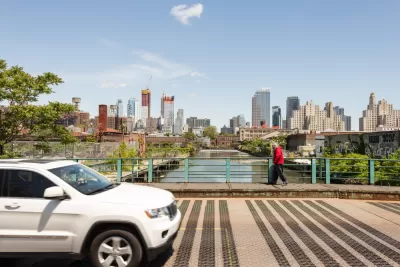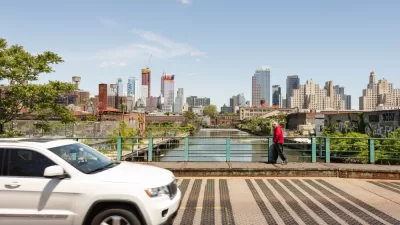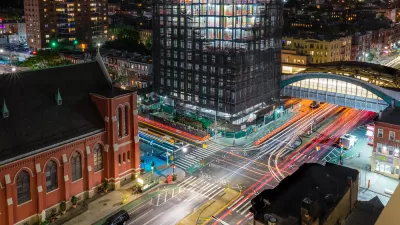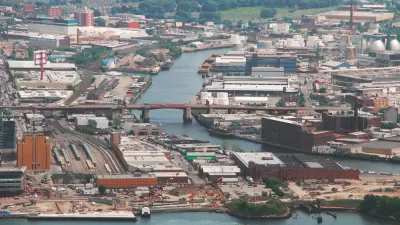As the New York City Council considers a controversial plan for the Gowanus neighborhood in Brooklyn, Moses Gates calls on the city to pass "one of the best and most inclusive community planning processes in recent times."

Moses Gates, vice president of housing and neighborhood planning at Regional Plan Association, writes an op-ed for the New York Daily News calling on the city of New York to approve the Gowanus Neighborhood Planning Study, which is waiting for a City Council decision after winning approval from the New York City Planning Commission and clearing obstacles like the pandemic and a lawsuit that targeted the plan for its socially distanced public review.
According to Gates, the ongoing controversy is the work of a "small handful of opponents…choosing lawsuits and scare tactics over engaging and providing ideas or solutions." These obstacles, according to Gates, "[threaten] to hijack one of the best and most inclusive community planning processes in recent times — one that directly addresses the long-standing environmental hazards of the neighborhood."
Doing nothing has consequences, writes Gates.
The opposite of moving forward with the Gowanus plan is not preserving the existing neighborhood in amber; it’s increasing flooding that slowly eats away at our infrastructure, letting our public housing crumble and abandoning efforts to clean up pollution. Instead of affordable housing and parks, we’ll see a combination of high-rent apartments and last-mile warehousing bringing more and more truck traffic to the neighborhood. It’s a future in which rents, which have increased by more than 20% in the last decade alone, continue to skyrocket due to the housing squeeze. It’s a future that adds nothing for either existing or new residents.
Gates argues that the Gowanus Neighborhood Planning Study would mitigate all of those trends. The Racial Equity Report for the plan foresees a net positive for racial equity, for example. Gates also explains how the plan will address stormwater and other environmental risks.
FULL STORY: It’s long past time to rezone Gowanus

Study: Maui’s Plan to Convert Vacation Rentals to Long-Term Housing Could Cause Nearly $1 Billion Economic Loss
The plan would reduce visitor accommodation by 25,% resulting in 1,900 jobs lost.

North Texas Transit Leaders Tout Benefits of TOD for Growing Region
At a summit focused on transit-oriented development, policymakers discussed how North Texas’ expanded light rail system can serve as a tool for economic growth.

Why Should We Subsidize Public Transportation?
Many public transit agencies face financial stress due to rising costs, declining fare revenue, and declining subsidies. Transit advocates must provide a strong business case for increasing public transit funding.

How to Make US Trains Faster
Changes to boarding platforms and a switch to electric trains could improve U.S. passenger rail service without the added cost of high-speed rail.

Columbia’s Revitalized ‘Loop’ Is a Hub for Local Entrepreneurs
A focus on small businesses is helping a commercial corridor in Columbia, Missouri thrive.

Invasive Insect Threatens Minnesota’s Ash Forests
The Emerald Ash Borer is a rapidly spreading invasive pest threatening Minnesota’s ash trees, and homeowners are encouraged to plant diverse replacement species, avoid moving ash firewood, and monitor for signs of infestation.
Urban Design for Planners 1: Software Tools
This six-course series explores essential urban design concepts using open source software and equips planners with the tools they need to participate fully in the urban design process.
Planning for Universal Design
Learn the tools for implementing Universal Design in planning regulations.
City of Santa Clarita
Ascent Environmental
Institute for Housing and Urban Development Studies (IHS)
City of Grandview
Harvard GSD Executive Education
Toledo-Lucas County Plan Commissions
Salt Lake City
NYU Wagner Graduate School of Public Service





























